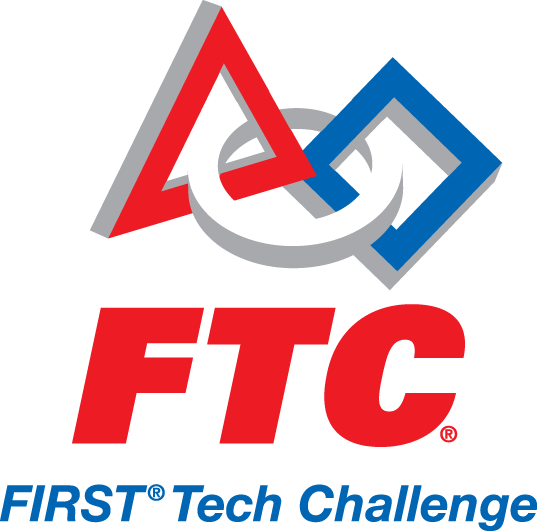What is FTC?
The FIRST Tech Challenge (FTC) is a mid-level robotics competition for high-school students. It offers the traditional challenge of a FIRST Robotics Competition but with a more accessible and affordable robotics kit. The ultimate goal of FTC is to reach more young people with a lower-cost, more accessible opportunity to discover the excitement and rewards of science, technology, and engineering.
FTC is designed for those who want to compete head-to-head, using a sports model. Teams of up to 10 students are responsible for designing, building, and programming their robots to compete in an alliance format against other teams. The robot kit is reusable from year-to-year and is programmed using a variety of languages.
Teams, including coaches, mentors and volunteers, are required to develop strategy and build robots based on sound engineering principles. Awards are given for the competition as for well as for community outreach, design, and other real-world accomplishments.
Students get to:
-
Design, build, and program robotsþ
-
Apply real-world math and science concepts
-
Develop problem-solving, organizational, and team-building skills
-
Compete and cooperate in alliances and tournaments
-
Earn a place in the World Championship
-
Qualify for close to $13.5 million in college scholarships
Competition
There is a new challenge every year in FTC. Each year there are new aspects to the game. In September each year, FIRST announces the game challenge to FTC teams at Kickoffs around the world. Official FTC events are Qualifying and Championship Tournaments; unofficial events are Scrimmage Tournaments. From Championship Tournaments, teams are invited to one of four Super-Regional Championship Tournaments (for US teams only) and then the World Championship based on predetermined advancement criteria. Teams advance from one level of competition to the next based on the advancement criteria laid out in the first part of that year's Game Manual.
Robots
FTC games are always played on a 12 × 12 ft (3.7 × 3.7 m) field covered in rubberized floor tiles (usually viewed from a square or diamond orientation). The game is played by two alliances (red and blue) of two teams each, for a total of four robots on the field during each match. At the start of a match, the robots cannot exceed the dimensions of 18 × 18 × 18 in (46 × 46 × 46 cm), but can expand during play. In each match, there is an autonomous period followed by an operator-controlled period. Depending on the year, the autonomous period can range from 20 to 45 seconds (30 is the most common) and the operator controlled period lasts 2 minutes.
Engineering Documentation
Along with building and programming a robot, FTC teams are required to create an 'Engineering Notebook' that documents their build season and team experience. It helps teams learn the value of the engineering process and gives them an opportunity to reflect on their experiences and improve. It also shows the judges at tournaments what the teams have overcome throughout the year.
Awards
Awards focus not merely on on-field robot performance, although that is often a component of determining an award, but look at broader skills such as communication, community outreach, teamwork, engineering, and a host of related STEM related skills. The following are awards presented at official Championship and Qualifying Tournaments (in rank order):
-
Inspire Award
-
Rockwell Collins Innovate Award
-
Motivate Award
-
Connect Award
-
Think Award
-
PTC Design Award
-
Control Award
-
Promote Award
-
Winning Alliance Award
-
Finalist Alliance Award
FIRST offers a variety of Scholarships through partners to students participating in FTC.
Additional information on the Awards for FTC can be found at the FIRST website.



